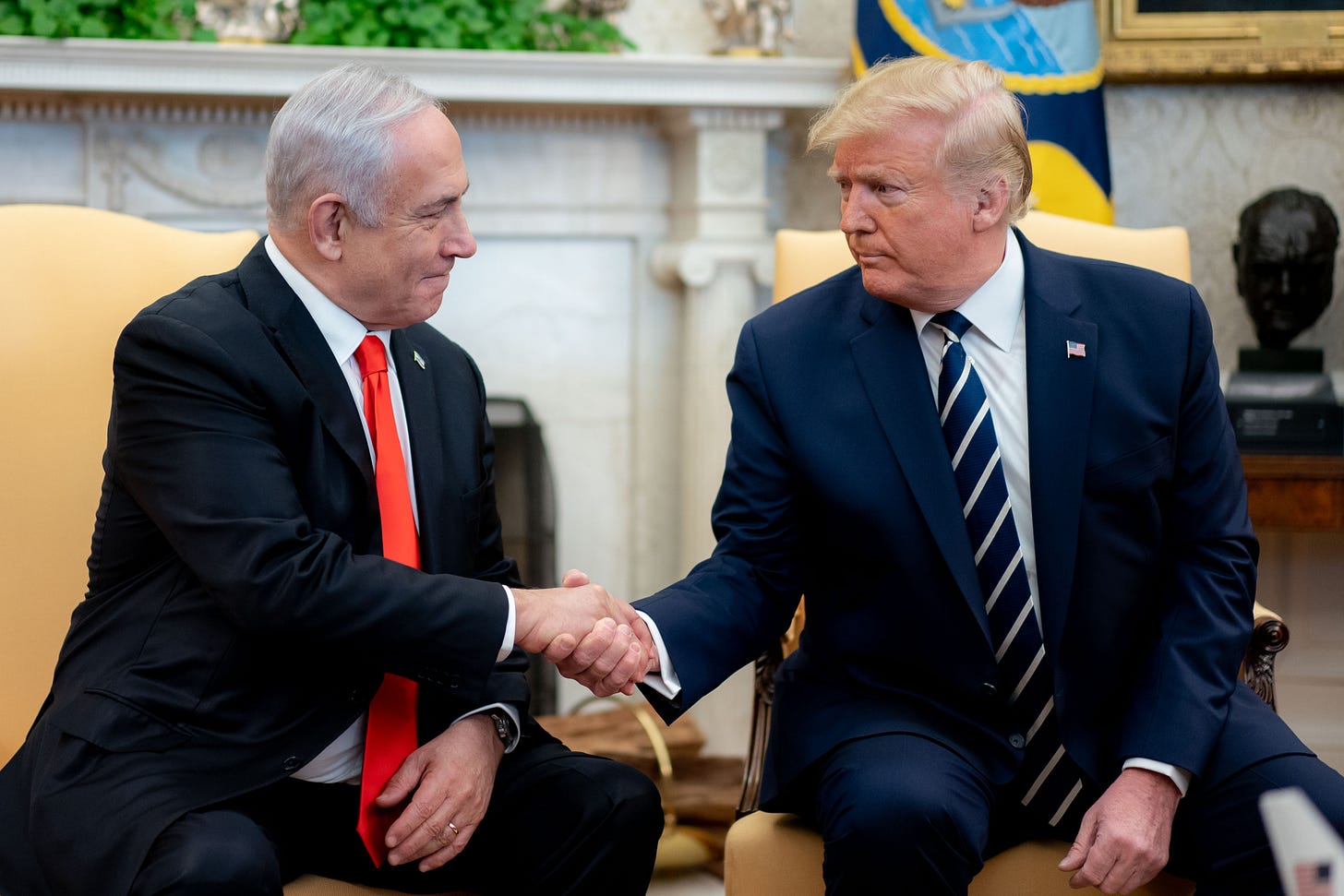President Donald Trump delivered an unusual public criticism of Israeli Prime Minister Benjamin Netanyahu on Tuesday, expressing his displeasure over Israel's unilateral airstrike against Hamas officials in Qatar. This key U.S. ally hosts approximately 10,000 American troops and serves as a crucial mediator in Gaza ceasefire negotiations.
The diplomatic crisis erupted after Israeli fighter jets bombed a Hamas facility in Doha on Tuesday morning, targeting the group's leadership as they deliberated on fresh U.S. proposals for a Gaza ceasefire. Trump learned of the attack from U.S. military officials as it was occurring, leading to heated phone conversations with Netanyahu in which the president made his disapproval clear.
A Diplomatic Bombshell in the Heart of Doha
The Israeli strike targeted Hamas officials meeting in the Katara neighborhood of Doha, causing massive explosions that echoed across the Qatari capital. The timing proved particularly sensitive, as the Hamas delegation was actively reviewing a new U.S.-backed ceasefire proposal at the moment of the attack.
"I'm not thrilled about it... We want the hostages back, but we are not thrilled about the way that went down today."
— President Donald Trump
Trump's frustration was palpable during his rare public outing to a Washington restaurant, where he told reporters he was "heartbroken about the way that it went down" and "not thrilled about the whole situation".
Presidential Displeasure Goes Public
In an extraordinary rebuke posted on Truth Social, Trump distanced himself from Netanyahu's decision, while emphasizing the importance of Qatar as an American ally. "This was a decision made by Prime Minister Netanyahu; it was not a decision made by me," Trump wrote, describing Qatar as a "strong ally and friend".
The president's statement continued with pointed criticism: "Unilaterally bombing inside Qatar, a sovereign nation and close ally of the United States that is working very hard and bravely taking risks with us to broker peace, does not advance Israel or America's goals".
White House Press Secretary Karoline Leavitt confirmed that Trump "made his thoughts and concerns very clear" during direct conversations with Netanyahu following the attack. The administration's displeasure was further underscored when Trump assured Qatari officials that "such a thing will not happen again on their soil".
Strategic Complications for Middle East Diplomacy
The strike threatens to derail fragile ceasefire negotiations that have been mediated primarily by Qatar and Egypt, with the Gulf nation hosting Hamas's political leadership in Doha. Qatar serves as a crucial bridge between the United States and various Middle Eastern actors, including facilitating discussions involving Iran-backed Hamas amid the ongoing Gaza conflict.
According to the Associated Press, Trump acknowledged that his administration received advance notice of Israel's plan and immediately dispatched special envoy Steve Witkoff to alert Qatari officials. However, Qatari Foreign Ministry spokesperson Majed al-Ansari confirmed the warning arrived only after the strikes had already commenced.
Vice President JD Vance reinforced Trump's position in a pre-taped interview with One America News Network, stating: "The president made very clear today that he's not happy about that – we just left the Oval Office and spoke about that... he doesn't think this serves Israel's interests or the United States' interests".
Qatar's Strategic Importance Under Fire
The attack on Qatari soil carries profound implications for U.S.-Qatar relations, particularly given the Gulf nation's hosting of the massive Al Udeid Air Base, which serves as the forward command center for U.S. Central Command. The facility houses approximately 10,000 American military personnel and represents one of the most strategically important U.S. installations in the Middle East.
Qatar's significance extends beyond military cooperation. The fossil fuel-rich emirate recently provided the United States with a luxury Boeing 747-8 jet for Trump's presidential use. However, the gesture raised ethical questions about foreign gifts to American officials. The nation has also played a crucial role in facilitating Trump's Middle East diplomatic initiatives since his return to office.
In response to the Israeli action, Qatar lodged a formal protest with the United Nations through its UN envoy Sheikha Alya Ahmed bin Saif Al Thani, who declared: "Qatar will not tolerate this aggressive Israeli behavior that undermines regional security, and will not accept any action targeting its security and sovereignty".
Balancing Act Between Allies
Despite his criticism, Trump attempted to maintain his support for Israel's broader objectives against Hamas while condemning the method and location of the attack. "However, eliminating Hamas, which has profited off the misery of those living in Gaza, is a worthy goal," Trump acknowledged in his Truth Social statement.
Israeli Ambassador to Washington Yechiel Leiter sought to downplay tensions, telling Fox News that the United States and Israel remained "united in the effort of eliminating Hamas as being a threat to peace in the Middle East". Leiter added: "We have acted together in the past, we'll act together in the future"”
The strike represents a significant escalation in Israel's nearly two-year war against Hamas, which began with the October 7, 2023, attacks that killed approximately 1,200 Israelis and resulted in more than 250 hostages being taken. The humanitarian toll in Gaza has been devastating, with over 64,000 Palestinians killed since the conflict began, according to the Gaza Health Ministry.
Diplomatic Damage Control
As diplomatic fallout continues, Trump has directed Secretary of State Marco Rubio to finalize a defense cooperation agreement with Qatar, signaling efforts to repair any damage to the bilateral relationship. The president's assurance to Qatari leaders that similar attacks would not recur on their territory suggests intensive behind-the-scenes diplomacy aimed at preventing further escalation.
The incident highlights the delicate balance Trump must maintain between supporting Israel's security objectives and preserving crucial partnerships with Gulf allies. With ceasefire negotiations now in jeopardy and regional tensions escalating, the administration faces the challenge of rebuilding trust with Qatar while continuing to support Israel's campaign against Hamas. The ultimate test will be whether diplomatic efforts can salvage peace talks and prevent further deterioration of relationships that are essential to American strategic interests in the Middle East.



